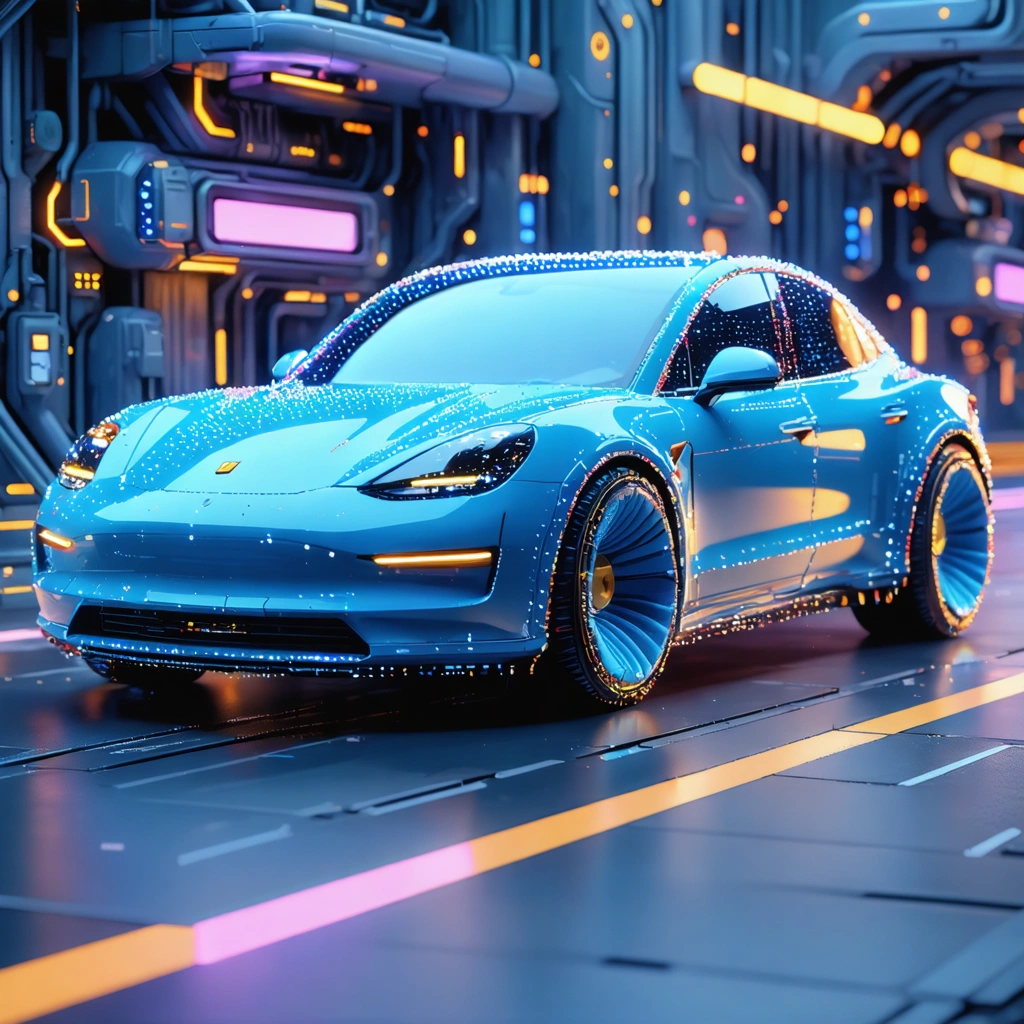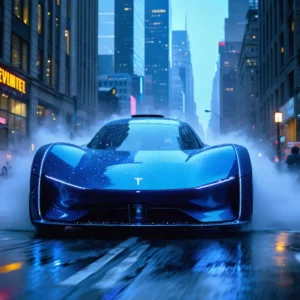
Introduction: The Emergence of AI in the Automotive Industry
The automotive industry is undergoing a significant transformation, driven by the rapid advancements in artificial intelligence (AI) technologies. In recent years, generative AI, machine learning, and advanced data analytics have not only redefined traditional car manufacturing processes but have also paved the way for innovative solutions in vehicle design, production efficiency, and customer experience management. With companies aiming to stay competitive, the integration of AI is proving to be a game-changer that supports decision-making and optimizes resource management.
Revolutionizing Production and Manufacturing
Smart Factories and Automated Processes
AI-driven smart factories are at the forefront of this revolution. Cutting-edge robotics and automation, powered by machine learning algorithms, are reshaping traditional manufacturing lines by introducing:
- Increased Efficiency: Automation streamlines workflows and reduces manual errors.
- Data-Driven Decision Making: Real-time data analysis guides production adjustments.
- Predictive Maintenance: Sensors and algorithms help preempt equipment failures.
By investing in AI technology, manufacturers are not only reducing operational costs but also increasing their production speed.
Quality Control and Supply Chain Optimization
Quality control is another critical area where AI is making a substantial impact. Through the use of innovative image recognition systems and sensor networks, vehicles are subject to stringent quality checks at every stage of production. These systems help in:
- Detecting microscopic defects in components.
- Ensuring product consistency throughout mass production.
- Automating quality assurance processes across the supply chain.
Moreover, advanced algorithms are streamlining supply chain management by predicting demand fluctuations, enhancing logistic operations, and reducing transportation inefficiencies.
Enhancing Customer Experience and Vehicle Performance
Personalized Services and Connected Vehicles
The integration of AI extends far beyond production floors, influencing customer interactions and the overall vehicular experience. AI-powered platforms are now capable of providing personalized services that cater to individual driver preferences. Features such as smart navigation, adaptive in-car entertainment systems, and real-time diagnostics contribute to a more connected and user-friendly experience. This trend is further bolstered by:
- Telematics and IoT Integration: Enabling seamless communication between vehicles and on-road systems.
- Enhanced Safety Mechanisms: Using advanced sensors for collision avoidance and driver assistance.
- Infotainment Innovation: Customizable interfaces that integrate with personal devices.
Impact on Vehicle Design and Performance
Modern vehicle design now leverages AI to optimize both aesthetics and functionality. Through generative design principles, AI helps engineers explore numerous configurations quickly. This iterative process not only minimizes material usage but also enhances aerodynamic performance, leading to more fuel-efficient vehicles. Furthermore, AI assists in the real-time monitoring of vehicular performance, ensuring that parameters such as engine efficiency, suspension stability, and fuel management are continuously optimized.
Addressing Challenges and Anticipating Future Trends
Data Security and Regulatory Concerns
Despite the promising prospects, the adoption of AI in the automotive industry comes with significant challenges. One of the foremost issues is ensuring robust data security. With increasing connectivity, vehicles have become part of the broader Internet of Things ecosystem, making them targets for cyber-attacks. Additionally, regulatory standards are evolving as legislators seek to maintain a balance between innovation and safety. Key challenges include:
- Protecting Personal and Vehicle Data: Implementing strict data privacy regulations.
- Compliance with International Standards: Harmonizing regulations across regions.
- Addressing Ethical Concerns: Ensuring that AI decisions are transparent and accountable.
Anticipating Future Trends and Innovations
Looking forward, the automotive industry is set to witness even deeper integration of AI. Emerging trends include:
- Increased Use of 5G Technology: Facilitating faster data transmission and more responsive AI algorithms.
- Advancements in Autonomous Driving: AI systems that can navigate complex urban environments with minimal human intervention.
- Sustainable Manufacturing Practices: AI solutions that promote eco-friendly production processes.
The convergence of AI with other emerging technologies such as augmented reality (AR) and blockchain is expected to contribute to a more interconnected and responsive automotive ecosystem.
Conclusion: Steering Towards a New Era
The relentless progression of AI in the automotive industry is not merely a technological upgrade; it is a paradigm shift that encompasses production, design, customer service, and sustainability. By embracing AI, automotive companies are better positioned to meet the challenges of a dynamic market landscape, enhancing reliability and safety while simultaneously driving down costs through optimized operations.
In the near future, as AI continues to evolve, we can expect a surge in innovations that will further redefine the global auto industry. Stakeholders—from manufacturers and designers to consumers—will all experience the wide-ranging benefits of a more efficient, connected, and secure vehicular environment. Ultimately, the integration of AI represents a commitment to progress and a forward-thinking approach that will shape the future of mobility on a global scale.
| Aspect | Impact |
|---|---|
| Manufacturing Efficiency | Streamlined processes with reduced waste and improved production speed. |
| Quality Assurance | Enhanced defect detection and higher product reliability. |
| Customer Experience | Personalized services and improved in-car technologies for a safer journey. |
| Innovation and Design | Generative design and real-time performance optimizations leading to next-generation vehicles. |
This deep dive into AI’s transformative role in the automotive industry highlights both the incredible opportunities and the challenges that lie ahead. With continued investment and technological breakthroughs, AI will undoubtedly continue to drive innovation, ensuring that the automotive sector remains at the cutting edge of modern engineering and customer satisfaction.




